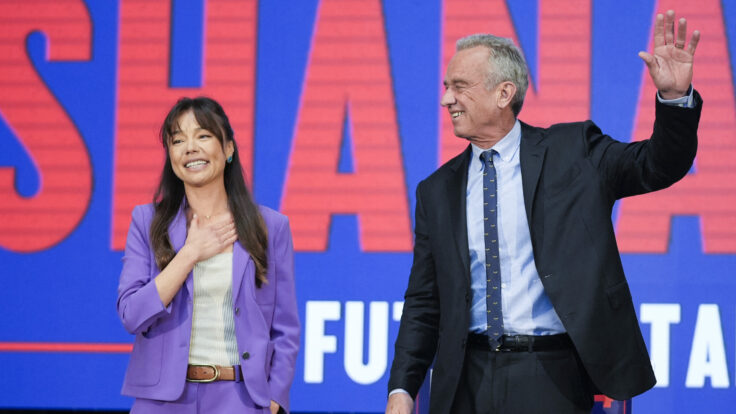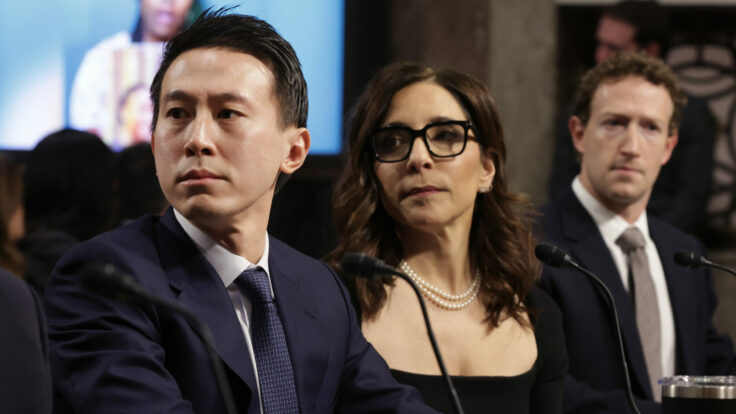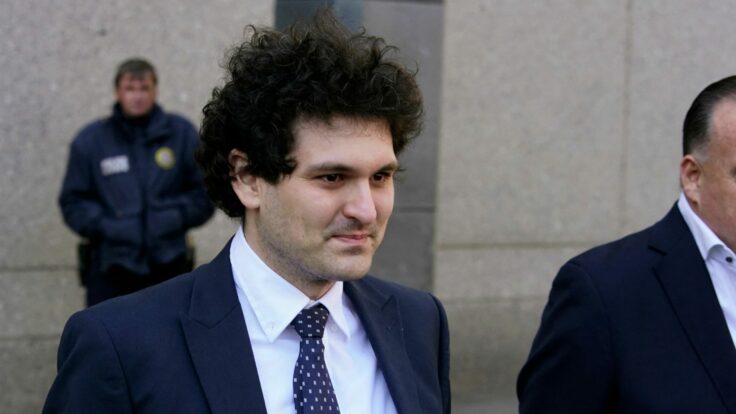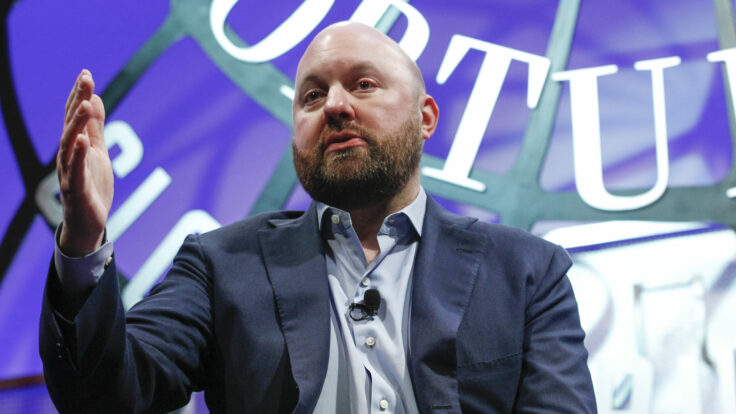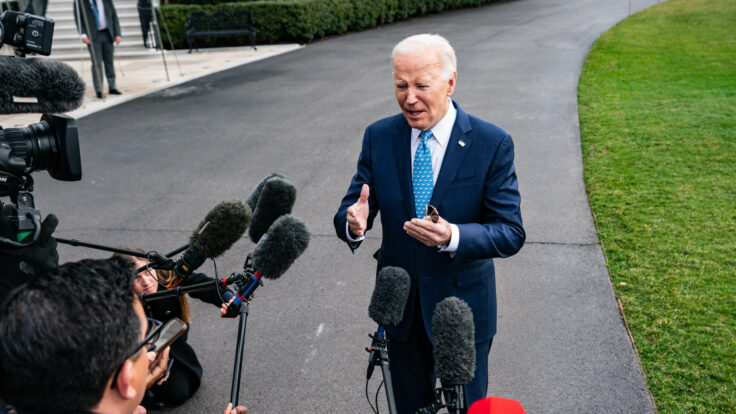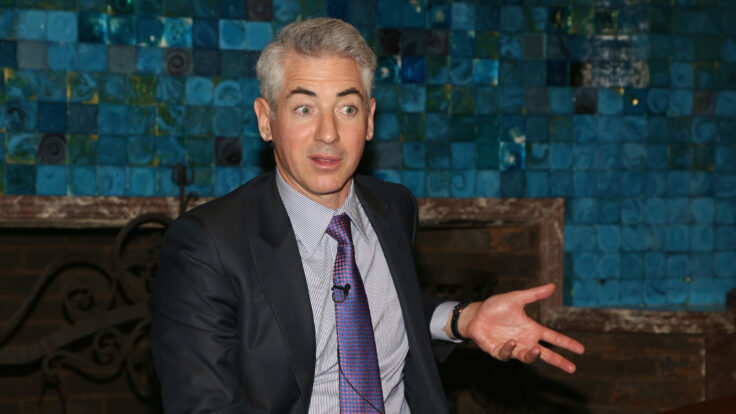Is there a bigger loser in the history of the chancery court than Elon Musk, who was recently ordered to relinquish $55 billion in compensation after a judge struck down his Tesla pay package? The jury is still out, especially if Musk files an appeal. In the meantime, however, Tornetta v. Musk has already produced a surprising legal aftershock: Shareholder lawyers are seeking to leverage that landmark decision to go after Jeff Bezos. And in a cosmic twist, it’s Musk who most stands to benefit.
Bezos, of course, isn’t just the chairman of Amazon. He’s also Musk’s leading competitor in the commercial spaceflight industry via Blue Origin, which boasts more than 11,000 employees and has sent more than a dozen payloads into orbit. However, Blue Origin has always played second fiddle to Musk’s SpaceX in terms of launches, government contracts, and hype. Over the years, Musk has seemingly relished his upper hand, taunting Bezos with his successes in the billionaire space race.
Inside Amazon, however, it’s SpaceX that’s being treated like a second-tier competitor. Back in 2019, Amazon announced “Project Kuiper,” a high-speed, satellite-based internet service that would require sending hundreds of payloads into orbit. Perhaps unsurprisingly, Bezos’s Blue Origin secured the contract; more worryingly, from a fiduciary perspective, SpaceX was allegedly never invited to bid on the project.
Sure, there could be a justifiable reason for that. Kuiper will compete with Starlink, Musk’s own satellite-based internet service. But lawyers at Grant & Eisenhofer, representing a Cleveland pension fund, are crying foul. In August, the firm accused Amazon of essentially prioritizing Bezos’s ego—and his feud with Musk—over the best interest of shareholders, who might have seen lower costs from a deal with SpaceX. Musk himself, they note, has stated that SpaceX’s launch services are available to Starlink’s competitors. Instead, according to the complaint, the Amazon board’s audit committee held two brief meetings about the matter and “rubber-stamped” the multibillion-dollar contract with Blue Origin.
Amazon’s rebuttal is being handled by Wachtell’s William Savitt (yes, the same legal luminary who faced off against Musk in the Twitter saga), which has made a case for the integrity of its board. Watchell attempted to wave away any whiff of fiduciary oversight gone awry, arguing that while directors “can always do more,” bad faith claims should be reserved for “disciplining directors who deliberately do essentially nothing.”
But in the wake of Tornetta, the shareholder lawyers have seized an opening. On February 16, they revised their complaint to underscore Bezos’s status as a “superstar,” like Musk, who is “so familiar to the world that no first name is required,” shrugging off how Bezos relinquished the C.E.O. role to Andy Jassy and now owns just 12 percent of Amazon’s stock. They asserted that Amazon’s board remains under Bezos’s spell, describing it as having “succumbed to a controlled mindset.”
Whether this strategy succeeds remains uncertain, but it could lead to an investigation of Bezos’s influence over his board, and whether additional measures beyond Bezos’s recusal were necessary to ensure the fairness of the Amazon-Blue Origin deal. Ironically, this might be the one occasion where Bezos finds himself rooting for Musk’s success in the courtroom: If Tornetta is upheld, it could establish a tougher governance standard.
The Vegas Fight of the Decade
Speaking of superstars and the Delaware corporate wetland, the WWE is still grappling with allegations surrounding its former ringmaster, Vince McMahon. The spotlight, of course, remains on the sex-trafficking lawsuit filed in late January by employee Janel Grant—but several Chancery lawsuits are zeroing in on McMahon’s role in the 2023 merger between WWE and Endeavor’s UFC. Numerous shareholder law firms, through redacted complaints, are suggesting the WWE turned a blind eye to superior sales offers in order to keep him at the helm after he returned from sexual misconduct exile. The news that Netflix is striking a $5 billion deal for a decade of the WWE’s flagship show, Raw, only adds weight to suspicions of WWE undervaluation for McMahon’s sake.
TKO Group Holdings—the new company that controls WWE and UFC—outlined its legal position in an S.E.C. filing this past week. And while the above situation is undeniably fascinating, an even more pressing predicament is unfolding on the other side of the company. Next month, a trial is set to kick off in Las Vegas after nine years of legal wrangling. This class action concerns fighter compensation following a series of UFC acquisitions, and carries a damages target of $1.6 billion. It could also have an impact on future M&A in consolidated industries.
The fighters, who are represented by 19 lawyers led by Joseph Saveri (Rainmaker readers will recognize him from his side hustle spearheading lawsuits on behalf of artists against A.I. companies), contend that the UFC locked up monopsony power over talent by acquiring and shutting down rivals like the World Fighter Alliance, World Extreme Cagefighting, Pride, and Strikeforce. This left fighters with little choice but to take their talents to the UFC, which ostensibly used its newfound power to coerce them into long-term contracts. The plaintiffs argue that fighters should be making much more, with comparisons being drawn to athletes in MLB, NFL, NBA, and boxing. They want a jury to return a verdict that encompasses deprived compensation.
The UFC has responded through its lawyers at Latham & Watkins and Paul Weiss, arguing fighters writ large have benefited from the risk-taking organization that once teetered on the edge of bankruptcy, and has erupted in popularity to become one of the world’s premier combat leagues. They paint the plaintiffs as disgruntled athletes who, despite losing the majority of their fights, were nevertheless paid exactly as promised. They hope to call other UFC fighters to the witness stand to testify about exploding opportunities and increased pay in the sport. They also deny the charge of being a monopsonist by pointing to competitors such as Bellator and PFL.
Remarkably, this is the first of two possible trials on this front. While this one concerns the time period between December 2010 and June 2017, another looming showdown engages with what fighters have been paid in more recent years—and also drags Endeavor into the melee. That other case is still in the early stages, and will undoubtedly be impacted by the outcome of next month’s trial.









